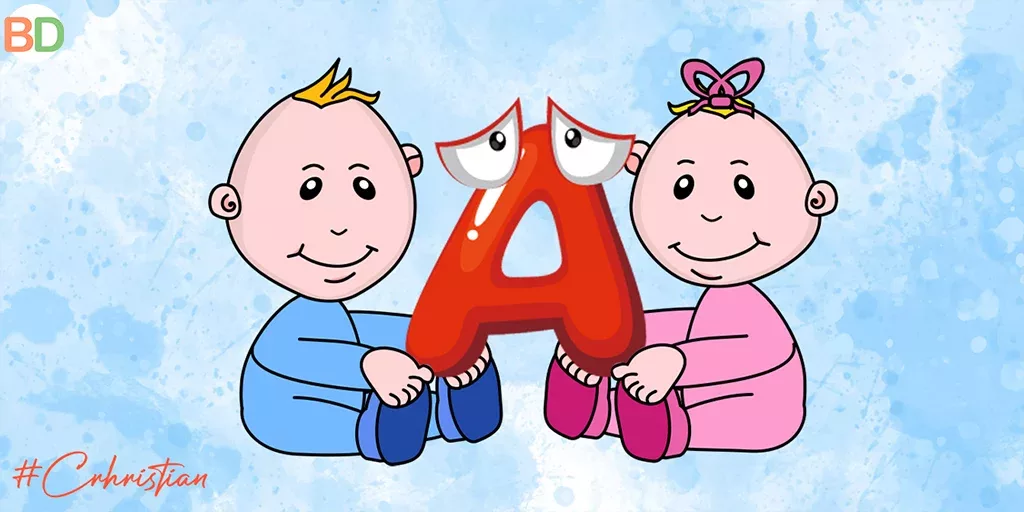Welcome, dear readers! You’re about to embark on a delightful journey through the rich tapestry of Polish baby girl names.This is something other than a rundown; it’s an assortment of stories, history, and a bit of sorcery to assist you with tracking down that ideal name for your valuable one. In this way, moving along, we should jump into the dynamic universe of Clean names.
With an aura of elegance and a symphony of tones, Polska appellations resonate perfectly with its people. Poland is an emblem of profound history, time-honored customs, and deep-seated cultural vibrancy. Names of Polish baby girls mirror these intricate layers of their motherland. Beyond the conventional and timeless, there exists a trove of rare yet captivating appellations to delve into. Yet, selecting an appellation for your fledgling damsel blends joy with the labyrinthine. A myriad of Polish appellations intertwine with the threads of Christianity and Judaism, becoming the favored choices for the pious. Furthermore, nature whispers its essence into many a feminine moniker.
Typically, in the heart of Poland, a name amalgamates two vital elements: the imię, the forename, and the nazwisko, the family’s emblematic surname. Naming conventions in Poland interplay between civil edicts, ecclesiastical rules, individual tastes, and distinct ancestral rituals. As per the land’s decree, an imię ought to resonate with the gender’s essence. A discerning eye might spot that most feminine appellations embrace the vowel -a, while their masculine counterparts culminate in consonants or other vowels. The demarcation between maiden and lad monikers thus becomes transparent. Apart from sacred appellations, the Slavic tapestry, rich with pre-Christian fibers, also influences the naming. A substantive populace leans towards anointing their offspring with a saintly appellation.
Some names, imbued with Lithuanian essence, find common ground in Poland. Medieval epochs have bequeathed Poland with a legacy of traditional monikers for damsels. Electing such monikers offers a nod to, or an acknowledgment of, one’s Polska lineage. Does your spirit stir with anticipation to unearth Polska appellations for your offspring? Navigate this diligently woven anthology of monikers, and you might chance upon a harmonious and poignant title for your daughter. Engaging with Polska denizens might also shed light on the intricacies of their naming tapestries.
Classic Polish Names with Royal Heritage
The Polish monarchy has bestowed upon us a treasure trove of beautiful names, perfect for your little princess.
- Wanda: Of Slavic origin, Wanda means “a wanderer.” Legend has it, Queen Wanda ruled Poland in the 8th century.
- Jadwiga: Derived from the Germanic name Hedwig, it means “fight” or “battle.” Jadwiga was a revered Polish queen and saint.
- Elżbieta: The Polish variant of Elizabeth, meaning “God is my oath.”
- Zofia: Of Greek origin, meaning “wisdom.” Zofia was a popular name among Polish royalty.
- Kazimiera: Female version of Kazimierz, meaning “to destroy the peace.”
- Malgorzata: The Polish form of Margaret, meaning “pearl.”
- Bożena: This name means “divine” or “godly.”
- Bronislawa: Meaning “glorious protector.”
More Great Name Ideas
Top 5 latter names N for Boys and Girls
Top Trending Baby Girl Names Starting With She
Nature-Inspired Names from the Polish Countryside
Poland’s pristine landscapes offer a wealth of inspiration for baby names.
- Roza: Meaning “rose,” this name is as delicate and beautiful as the flower itself.
- Liliana: A variant of Lillian, this name means “lily.”
- Jasmina: Of Persian origin, meaning “jasmine flower.”
- Tola: Short for Teofila, this means “God’s friend.”
- Kamila: Means “young ceremonial attendant.”
- Kalina: A lovely name which means “viburnum tree.”
- Wiola: A variant of Viola, it stands for the violet flower.
- Tarnina: Represents the “blackthorn tree.”
Art and Culture Inspired Names
Polish art and literature have given birth to some unforgettable names.
- Aniela: Meaning “angel.” It’s a name as soft and ethereal as its meaning.
- Oliwia: Polish form of Olivia, meaning “olive tree.”
- Agnieszka: Derived from the name Agnes, it means “chaste” or “pure.”
- Halina: Of Greek origin, meaning “calm” or “moon.”
- Karina: A variant of Carina, meaning “beloved” or “dear.”
- Maja: Polish form of Maya, representing “mother” or “great.”
- Zuzanna: Polish version of Susannah, which means “lily.”
- Daria: Of Persian origin, meaning “possesses a lot,” or “wealthy.”
Names Inspired by Polish Saints and Legends
These names are steeped in history and spirituality.
- Stanislawa: Female version of Stanisław, which means “become glorious.”
- Felicia: Means “fortunate” or “lucky.”
- Marta: Polish form of Martha, meaning “lady” or “mistress.”
- Barbara: Of Greek origin, it stands for “foreign woman.”
- Joanna: A variant of Jane, meaning “God is gracious.”
- Faustyna: Inspired by Saint Faustina, it means “fortunate” or “lucky.”
- Klara: Polish form of Clara, representing “clear” or “bright.”
- Ludmila: Means “people’s favor.”
Names Signifying Strength and Valor
For the strong-willed little girls.
- Bogumila: Meaning “God’s beloved.”
- Grazyna: Originating from the poem “Grażyna” by Adam Mickiewicz, it means “beautiful.”
- Leokadia: Of Greek origin, meaning “white” or “bright.”
- Milena: Represents “gracious” or “dear.”
- Danuta: Meaning “God has given.”
- Renata: Stands for “reborn.”
- Irena: Of Greek origin, meaning “peace.”
- Krystyna: The Polish variant of Christina, meaning “Christian.”
100 Polish baby girl names with their meanings and origins:
| Name | Meaning | Origin |
| Ada | Noble, kind | Germanic |
| Agata | Good-hearted | Greek |
| Aleksandra | Defender of man | Greek |
| Alicja | Noble | Germanic |
| Amelia | Work, effort | Germanic |
| Aniela | Angel | Polish |
| Barbara | Foreign, strange | Latin |
| Beata | Blessed | Latin |
| Bogna | Given by God | Slavic |
| Bożena | Godly, divine | Slavic |
| Celina | Heaven | Latin |
| Czesława | Honor and glory | Slavic |
| Danuta | Gift from God | Polish |
| Dorota | Gift of God | Greek |
| Elżbieta | My God is an oath | Hebrew |
| Emilia | Rival | Latin |
| Ewa | Life, living | Hebrew |
| Felicja | Fortunate, happy | Latin |
| Franciszka | Free | Latin |
| Gabriela | God’s strength | Hebrew |
| Grazyna | Beautiful | Lithuanian |
| Halina | Shiny, bright | Greek |
| Hanna | Grace, favor | Hebrew |
| Helena | Light | Greek |
| Iga | Fighter | Teutonic |
| Jadwiga | Battle, fight | Germanic |
| Jolanta | Violet flower | Greek |
| Justyna | Just, righteous | Latin |
| Kamila | Perfect | Arabic |
| Karolina | Free woman | Germanic |
| Katarzyna | Pure | Greek |
| Kinga | Brave in war | Germanic |
| Krystyna | Follower of Christ | Greek |
| Łucja | Light | Latin |
| Ludwika | Famous warrior | Germanic |
| Magdalena | From Magdala | Hebrew |
| Małgorzata | Pearl | Greek |
| Maria | Sea of sorrow, rebellion, wished-for child or beloved | Hebrew |
| Marta | Lady | Aramaic |
| Martyna | Warrior | Latin |
| Milena | Love, warmth, and grace | Slavic |
| Monika | Advisor | Latin |
| Nadia | Hope | Slavic |
| Natalia | Birth | Latin |
| Nela | Light | Greek |
| Olga | Holy | Norse |
| Oliwia | Olive tree | Latin |
| Patrycja | Noblewoman | Latin |
| Paulina | Small | Latin |
| Renata | Reborn | Latin |
| Róża | Rose | Latin |
| Sabina | A Sabine woman | Latin |
| Salomea | Peace | Hebrew |
| Stanisława | Fame, glory | Slavic |
| Stefania | Crown | Greek |
| Sylwia | Forest | Latin |
| Tamara | Date palm tree | Hebrew |
| Teresa | Harvester | Greek |
| Urszula | Little bear | Latin |
| Wanda | Wanderer | Slavic/Germanic |
| Weronika | True image | Greek |
| Wiktoria | Victory | Latin |
| Zofia | Wisdom | Greek |
| Zuzanna | Lily | Hebrew |
| Żaneta | God’s grace | Hebrew |
| Żanna | God is gracious | Hebrew |
| Alina | Bright, beautiful | Slavic |
| Aneta | Grace | Hebrew |
| Dagmara | Day’s glory | Old Norse |
| Daria | Wealthy, rich | Persian |
| Ewelina | Desired | Old French |
| Irena | Peace | Greek |
| Izabela | My God is an oath | Hebrew |
| Jagoda | Berry | Slavic |
| Janina | God is gracious | Hebrew |
| Jowita | Joyous | Slavic |
| Klaudia | Lame | Latin |
| Lena | Torch or moon | Greek |
| Liliana | Lily | Latin |
| Maja | Mother | Latin |
| Marcelina | Warlike | Latin |
| Marzena | Of Mars or war | Latin |
| Mirabella | Wonderful | Latin |
| Nikoleta | People of victory | Greek |
| Oksana | Glory be to God | Hebrew |
| Pola | Of Apollo | Latin/Greek |
| Roksana | Dawn | Persian |
| Roza | Rose | Latin |
| Sandra | Defender of man | Greek |
| Serafina | Fiery, ardent | Hebrew |
| Tamara | Date palm tree | Hebrew |
| Tatiana | Fairy queen | Latin |
| Teodora | Gift from God | Greek |
| Valentina | Strong, vigorous, powerful | Latin |
| Violetta | Violet | Italian |
| Wioletta | Violet | Polish |
| Yolanda | Violet flower | Greek |
| Zdzisława | Here is glory | Slavic |
| Zlata | Gold | Slavic |
| Żaklina | Supplanter | Hebrew |
Wrapping Up
Poland’s rich history, landscapes, and art offer a vast array of meaningful names for your baby girl. Each name has a story, an opinion, and a set of experiences behind it. We trust this guide fills in as a signal, enlightening your way as you pick a name that resounds with your heart and legacy.
Eventually, the best name for your child is one that feels solidly in your heart, one that conveys with it the adoration, expectations, and dreams you have for your little one. Anything that name you pick, may it be a wellspring of pride, euphoria, and character for your kid.
FAQs
- How does the Polish ethos regard religious appellations?
Names such as Benilda, echoing the resonance of a ‘ursine conflict,’ Bona, epitomizing ‘integrity,’ Eustochia, alluding to the precision of being ‘well-directed,’ and Fides, encapsulating the essence of ‘conviction,’ delve deep into the sanctified realm, underlining the paramountcy of spiritual sagacity and discernment within the Polish tapestry. Such appellations, evocative of sacrosanct figures in Christian sanctuaries, are conferred upon neonate females, symbolizing a tribute to their esteemed presence, bestowing veneration and deference.
- Which Polish monikers for females glide effortlessly in pronunciation?
Names such as Gaja, encapsulating the exuberant spirit of ‘terra,’ melodiously flow as GA-ya. In a similar vein, Inga, resonating the tether to one’s ‘progenitor,’ articulates phonetically as EENG-ga, whilst Kazia, infusing the dichotomous sentiments of ‘to obliterate, tranquility,’ mellifluously resonates as KA-zha.
- Which Polish appellations for female offspring presently hold the limelight?
For those seeking a blend of allure and profundity in Polish monikers for their offspring, one might contemplate choices such as Adelajda, imbibing the quintessence of ‘aristocracy,’ Albinka, conjuring visions of ‘purity,’ Alina, emanating ‘luminosity,’ Anka, epitomizing the elegance of ‘benignity,’ Dagmara, reflecting the vivacity of a ‘dawn-maiden,’ Ewa, emblematic of the cherished boon of ‘existence,’ and Kamila, capturing the fervor of ‘a votary engaged in sacred rites.’



